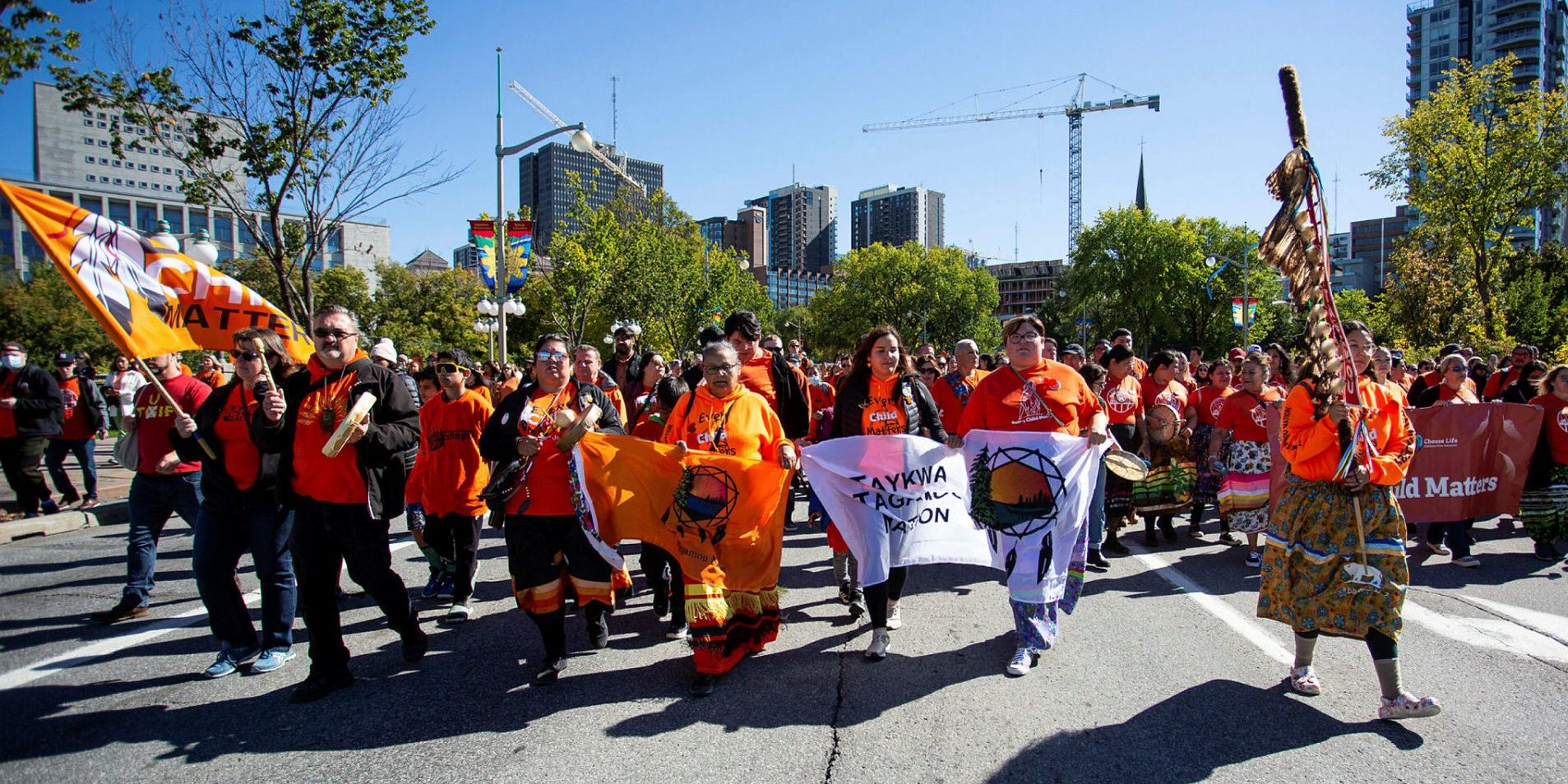Message to Carney: the safety of Indigenous women and girls is in the national interest

With Parliament in Ottawa, one of Prime Minister Mark Carney’s top priorities is now implementing Bill C-5, the controversial major projects legislation rushed into law before summer adjournment. Bill C-5 grants Ministers in Cabinet sweeping powers to undermine the Constitution and other key legislation to approve major projects deemed to be of ‘national interest’.
Unsurprisingly, the Liberals faced widespread condemnation for passing this legislation without adequate consultations, especially since the Bill stands to undermine the democratic process, Indigenous constitutional rights, environmental protections, and public and worker safety.
Equally troubling is the Liberals’ total disregard for the 231 Calls for Justice of the National Inquiry into Missing and Murdered Indigenous Women and Girls (MMIWG)—despite clear evidence that fast-tracked resource projects fuel violence against them. This is unacceptable. We cannot embrace development projects that Carney’s Liberals deem to be of national interest if they endanger the lives of Indigenous women and girls.
The National Inquiry found clear evidence linking industrial work camps—like those in projects advanced by Bill C-5—to increased violence, determining these ‘man camps’ “are implicated in higher rates of violence against Indigenous women at the camps and in the neighbouring communities.” In a 2022 study, the House of Commons Status of Women Committee affirmed this finding, urging the government to require companies to implement community safety plans and to hold companies accountable when they fail to do so.
Unfortunately, when I questioned the minister of energy and natural resources about this study in relation to Bill C-5 during debate in the House of Commons, he indicated that he had not read the report, suggesting rather that it was an issue for law enforcement. His failure to recognize the urgent need for community safety plans to protect Indigenous women and girls is unacceptable. The Canadian economy must not be built on a foundation of violence.
According to the national inquiry, resource extraction projects consistently bring into rural and remote areas many transient workers who have no ties to their host communities. These communities frequently report elevated levels of harassment and violence perpetrated by transient young men, particularly against Indigenous women and girls. During an industrial project in Fort St. James, B.C., RCMP data showed a 38 per cent increase in local sexual assaults in the first year alone.
The economic dynamics of ‘boomtowns’ often exacerbate gender-based violence. Indigenous women are frequently excluded from the negotiation of development projects, even on issues that directly impact their safety and economic wellbeing. Promises of employment opportunities made to Indigenous nations rarely translate into benefits for Indigenous women themselves. Instead, high-paying jobs are disproportionately given to incoming transient, often young, male workers. The resulting economic vulnerability of local residents creates conditions ripe for exploitation, including human trafficking and the sexual exploitation of women and girls.
These realities underscore why the national inquiry called on governments to require gender-based impact assessments for all resource projects. Shockingly, Bill C-5 contains no such review processes, demonstrating a failure of the federal government to include a gender-based analysis. Pushing through projects without community safety plans will inevitably condemn Indigenous women and girls to bear the cost of corporate violence.
Justin Trudeau admitted that the crisis of MMIWG amounts to an ongoing genocide. Yet the Liberals continue to turn their backs on Indigenous women and girls through Bill C-5. Carney is the latest prime minister who has abandoned the National Inquiry’s Calls for Justice, while also violating the United Nations Declaration on the Rights of Indigenous Peoples Act (C-15), by which Canada must “ensure that indigenous women and children enjoy the full protection and guarantees against all forms of violence and discrimination.”
Is protecting the lives of Indigenous women and girls not in Canada’s national interest? Do we truly want to build an economy in a way that knowingly places Indigenous women and girls at risk? If Canada is serious about building an economy rooted in dignity and human rights, the Liberals must ensure that Indigenous women and girls are given a seat at the table, that our voices are heard, and that our lives are safeguarded.
Leah Gazan has been the NDP MP for Winnipeg Centre, Man., since 2019. She is currently her party’s critic for families, children, and social development; critic for women and gender equality; and critic for post-secondary education. Gazan is a member of Wood Mountain Lakota Nation, located in Saskatchewan, Treaty 4 territory.
The Hill Times





 LICENSING
LICENSING PODCAST
PODCAST ALERTS
ALERTS


